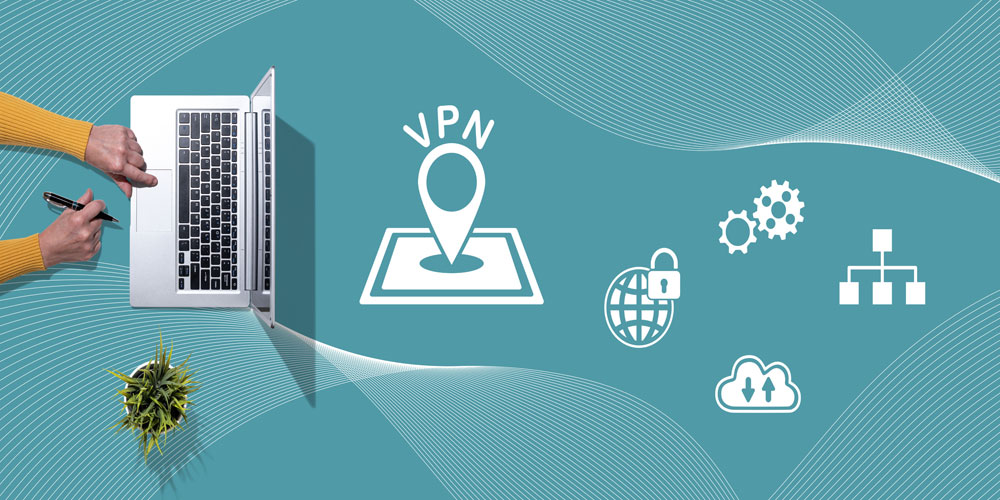The Capabilities & Limitations of a VPN
As time goes by, an increasing number of individuals are relying on VPN tools to improve their online experiences. Whether for safeguarding sensitive information, bypassing geographical limitations, or achieving seamless gaming performance, VPNs have emerged as a popular choice among users worldwide.
With just a few simple clicks, a VPN (Virtual Private Network) can enhance your privacy, conceal your location, and grant you access to various streaming libraries across the globe. However, the increasing popularity of VPNs and influx of providers can lead to being caught up in the excitement. While some services make grand promises of complete online anonymity or transforming your device into an impenetrable stronghold.
Based on the experiences reported by TechRadar, their team state that they consistently assess and evaluate VPN services. Through this, they have witnessed the significant capabilities of these tools, but also the common misconceptions and exaggerated claims surrounding them.
Do Users Have a Clear Understanding of VPN Functionality?
In May, TechRadar conducted a survey to gauge public understanding. The findings were intriguing: 97% of participants reported having a general understanding of a VPN’s purpose. Despite this, approximately 30% held the misguided belief that using a VPN would grant them total anonymity online.
That’s an issue — as it is not an accurate statement.
Although VPNs can enhance your online privacy and provide an additional level of anonymity, they should not be relied on as the only means of complete invisibility. It is important to understand the limitations of VPNs in order to make informed choices about safeguarding your digital presence.
The capabilities of a VPN include…
At its essence, a VPN is a security tool that secures your online data and conceals your IP address. Now, let’s examine these capabilities in greater detail.
Protecting: Data is Encrypted & transformed into Code
With a secure VPN connection, your data is encrypted and transformed into indecipherable code. As a result, individuals such as hackers, advertisers, your internet service provider, or government agencies are unable to easily track your online activities.
Encrypting your data is crucial, especially when using public Wi-Fi such as in airports, hotels, or cafes. These networks are commonly vulnerable and utilizing a VPN can safeguard you against potential cyber dangers like man-in-the-middle attacks.
The technique of IP Spoofing can be utilized to achieve both anonymity and access.
Your IP address can divulge a great deal about you, including your whereabouts, device, and possibly even your ISP. To conceal this information, VPNs redirect your internet activity through a protected server in a different area. This technique is commonly referred to as IP spoofing.
Using a VPN to conceal your IP has numerous advantages:
Gain access to geo-blocked content by utilizing overseas servers, allowing you to stream a variety of shows and movies from various countries.
By using a VPN, you can effectively bypass any censorship that may be restricting your access to certain websites and apps in your region.
Enhanced Gaming Protection: Certain players utilize VPNs for safeguarding against DDoS attacks, minimizing latency, and accessing game servers in different geographic locations.
In addition to improving your online security, VPNs also decrease your digital footprint, making it more difficult for businesses and snoops to monitor your browsing across various websites. This extra level of privacy has solidified the reputation of VPNs as essential tools for protecting one’s online presence.
There are certain limitations to what a VPN is capable of achieving.
As beneficial as they may be, it’s crucial to acknowledge that VPNs do not possess the power to provide total anonymity on the internet. This is where their limitations become apparent.
Not everything is hidden by them.
VPNs encrypt your data and hide your IP address, but they do not mask all metadata – the digital breadcrumbs that track your online activity. This includes:
>>> Which device you’re utilizing
>>> The data packet’s size
>>> The instance when you visited a website
>>> The apps or services that you linked to.
In the era of AI-driven analysis, metadata can unveil significant information even without content. This data is frequently utilized by law enforcement and data brokers to construct comprehensive user profiles.
Currently, only a small number of VPN services are addressing this matter. NymVPN utilizes cutting-edge mixnet technology to conceal metadata, while Mullvad has created DAITA, a tool designed to minimize metadata exposure.
Using social media does not make you invisible.
While using a VPN may mask your identity when logging into your actual Facebook or Instagram accounts, it does not completely conceal your digital footprints. These platforms still have access to personal information that you may have previously shared with them.
Antivirus software should not be substituted with this tool.
While it is true that various modern VPN applications offer features such as ad blocking and anti-tracking, it is important to note that these should not be considered as replacements for a dedicated antivirus. While a VPN can provide some protection against certain threats, it is crucial to have a comprehensive online security suite in place to effectively identify and prevent malware, phishing scams, and trojans.
Ultimately, the end result is what truly matters.
VPNs are highly advantageous in enhancing your overall online experience. They offer increased privacy, improved accessibility to restricted content, and enhanced security against potential cyber threats.
While VPNs are a great tool for online security, they do have limitations. They cannot completely erase your online presence or shield you from every potential online danger. Therefore, it is important to use a combination of measures such as strong passwords, two-factor authentication, antivirus software, and safe browsing practices in order to achieve true safety and privacy on the internet. A VPN should be viewed as part of a comprehensive digital security plan rather than the sole solution.
Whether you frequently travel, enjoy streaming content, engage in competitive gaming, or simply prioritize online privacy, utilizing a VPN is highly beneficial. However, it’s important to understand its capabilities and limitations.
